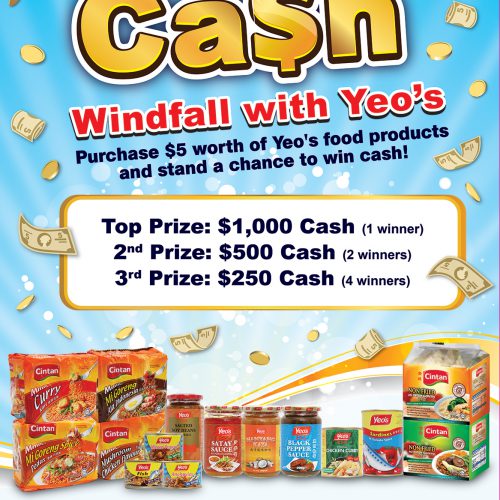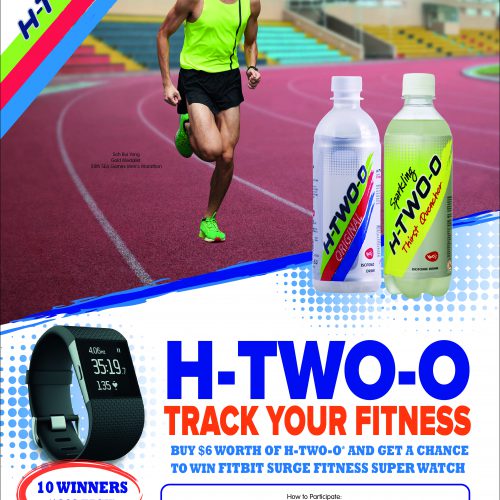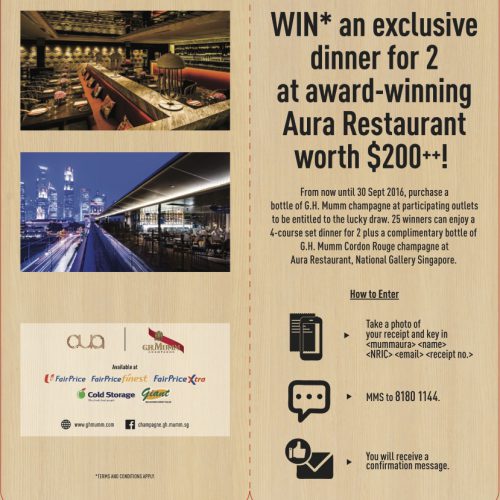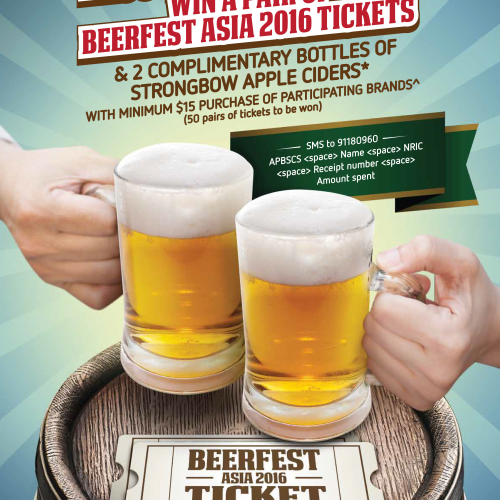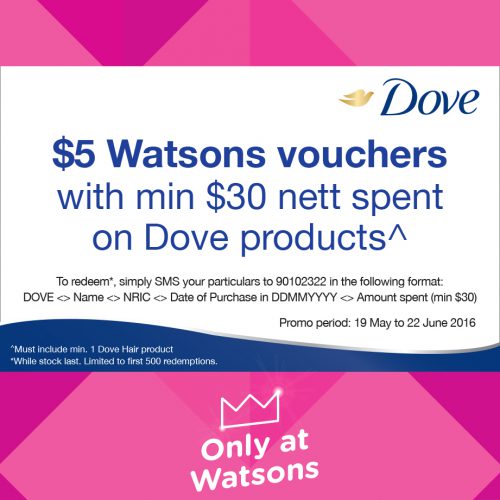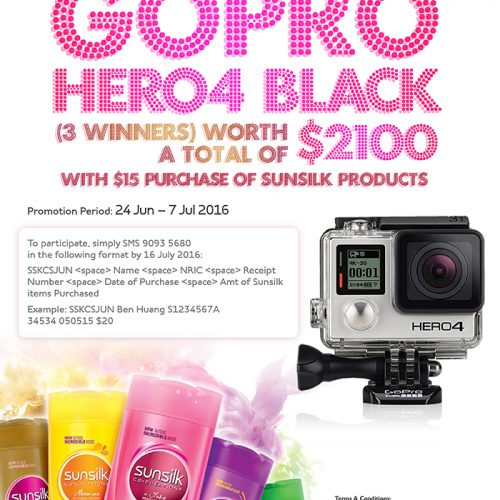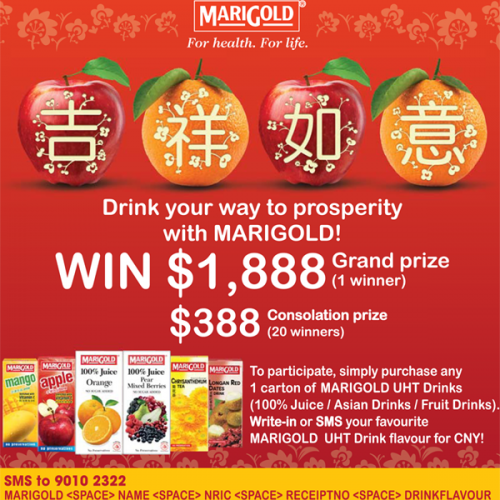FMCG Contest System
It’s vital to stand out in the FMCG industry because the competition is relentless. Lucky draw contests give your brand the opportunity to delight customers with attractive prizes, providing even more reasons to choose your products over the competition. Launch SMS, WhatsApp, or Web contests and lucky draws with a proven system designed to boost sales and nurture loyal brand ambassadors.
Based on industry insights, 70% of FMCG contests hosted in Singapore each month are powered by SmsDome.

The Benefits of Customer Engagement
By engaging existing and new customers with fun and compelling prizes, your business establishes an edge over other competing brands by offering consumers incentives to choose your products. Use SMS, WhatsApp and Online Lucky Draws to:
- Nurture loyal customers
- Launch viral campaigns
- Build awareness for new products
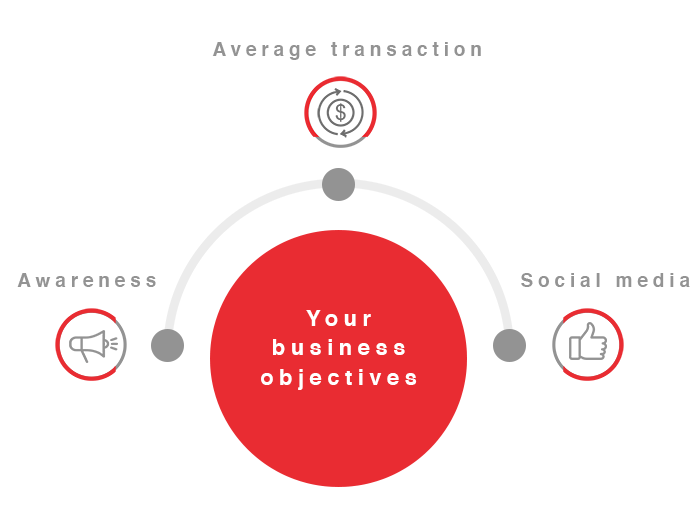
The 3 Contests Objectives
Using WhatsApp, SMS or Web contests to achieve 3 different business goals.
1. Build awareness for brand / new products
Buy any {brand product} and stand a chance to win…
2. Increase social media engagement
Like our page to stand a chance to win…
3. Increase average transaction
Spend a minimum of $20 to qualify…
Host Different Types of Contests
No matter which platform your contest participants choose, the system will help to organize contest entries via all platforms for you. This is done by identifying successful or unsuccessful submissions, and responding automatically to participants with acknowledgements or alerts.
Your contest participants can make their submissions via:
- SMS
- Online
Export Contest Data in a Flash!
Managing hundreds of contest entries can be time-consuming and is prone to errors. Export participant data quickly with zero-latency through our SMS contest system, at a click of a button. And just as every service we provide, you receive 24 hour round-the-clock support!
- Zero-lag for large data exports
- Customisable field formats
- 99.9% Uptime
- 24-hour IT support
The Advantages of Launching SMS Contests
Visual Appeal
Attract contest participants with vibrant artwork that makes an impression with consumers.
Convenient
Launch contests easily by setting contest mechanics, and let the system randomly pick winners for you.
Cost Effective
Contests can be launched online, businesses need not nessesarily spend on advertising on print and media.
A Myriad of Marketing Variations For You
Click here to see the latest SMS contests on our Facebook Page
SUBMIT YOUR REQUIREMENTS BELOW
Frequently Asked Questions
Q: What is the participation rate businesses can expect?
A: Participation rate depends on 4 main factors
- Life span of product
Shorter lifespan products tend to be more frequently purchased, giving more exposure to the contest. - Exposure
The more channels the SMS contest artwork is displayed, the more reach it gets, leading to a higher participation rate. - Prices
Affordable products and minimal purchases gives consumers more reasons to try new products and to enter lucky draws. - Prizes
Finally, the more attractive the prizes are, the more consumers are inclined to participate.
Q: What types of contest mechanics are most used by businesses?
A: Here are some of the most popular types of SMS contests.
- Multiplier
(every x amount spend = 1 chance) - Quiz
(Guess the correct answer) - Minimum purchase
(Minimum purchase of $x or x packs to participate) - First come first serve
(First x number gets a discount) - Instant win
(Scratch card with unique code – sms in and know what you win immediately) - Multi-channel
(Sms, FB, Online)
What is a “Lucky Draw”?
Under our current laws, lucky draws are considered examples of trade promotion games and lotteries. Such games and lotteries are mainly organised for the purpose of promoting a business’ trade in goods or services. Participation is usually either free of charge or dependent upon purchasing the goods or services that form the subject of the promotional campaign.
Aside from lucky draws, other examples of trade promotion games and lotteries include sweepstakes where a consumer gets a chance to win a prize every time they buy the goods or services being promoted.
Examples of such games and lotteries include a vendor at a technology trade fair offering customers a chance to participate in a lucky draw after purchasing the vendor’s goods, or an e-commerce platform offering consumers a chance to take part in a lucky draw after meeting a minimum purchase requirement.
Does a Business Need a Licence to Conduct a Lucky Draw in Singapore?
Currently, the Gambling Control Act (GCA) allows for certain types of lower-risk gambling services (such as lucky draws) to be offered by persons or entities under a class licence regime. Under this class licence regime, there is no need for a person or an entity to apply for a class licence from Singapore’s Gambling Regulatory Authority (GRA) or submit any notification to the GRA before conducting trade promotion games or lotteries.
The GRA, which is a statutory board under the purview of the Ministry of Home Affairs, is in charge of regulating Singapore’s gambling industry. As a regulatory agency, the GRA has enforcement powers which include imposing financial penalties, suspending licences and issuing letters of censure.
As long as all applicable requirements in the class licence order are satisfied, the class-licensed operator is free to operate. In the case of a business conducting a lucky draw, this would fall under the Trade Promotion Games of Chance and Lotteries class licence. There are two sets of conditions that need to be satisfied in order for a business to carry out trade promotion activities: These are.
- Qualifying conditions: Conditions that must be satisfied for a business to qualify as a class licensee under the class licence regime.
- Conditions subsequent: Conditions that must be satisfied by the business when carrying out the trade promotion activity or lucky draw.
The qualifying conditions are as follows:
- The goods and services being promoted by the lucky draws cannot be related to gambling; and
- Businesses are not allowed to collect any money from persons to take part in these games of chance and lotteries. Hence, participation in such games must either be free of charge or contingent on buying the goods or services being promoted.
In addition, a business would need to fall under the definition of an “entity” to qualify for this class licence. An “entity” encompasses the following:
- A corporate body (this includes a limited liability partnership);
- An unincorporated association;
- A partnership;
- A body of individuals who together form a body; and
- A person other than an individual.
Subsequent conditions that the business would need to satisfy to qualify for a class licence are set out in the Gambling Control (Trade and Other Promotional Games and Lotteries — Class Licence) Order 2022. Here are some of them:
- Prohibited images: Images of gambling articles specified in the Second Schedule cannot be displayed or used when conducting the trade promotion activity. Examples include images of dominoes, Mahjong tiles, roulette wheels and gaming machines.
- Material information: Material information pertaining to the trade promotion activity must be provided to participants. The information may be published in a newspaper, other publications such as a magazine, on the business’ online website, or printed on tickets to be distributed to players. Examples of material information include:
- Name of the business conducting the trade promotion activity
- Date, place and time of the trade promotion activity
- Rules of the trade promotion activity
- The prizes available and how they will be allocated to winners
- How winners will be notified
- How the trade promotion activity will be publicised
- Any other terms and conditions of the trade promotion activity
- Notification of prize winners: Prize winners have to be notified of their prizes within 7 days of the winners being decided, and prizes have to be given to the winners without delay.
Can the Lucky Draw be Conducted in a Physical or Remote Setting (e.g. Through a Website)?
There are currently no restrictions on the mode in which the lucky draw is conducted. It can be conducted in or from any location in Singapore via either:
- A physical setting (e.g., spinning a physical lucky draw wheel in-person at a trade fair); or
- A virtual platform (e.g., spinning a virtual lucky draw wheel on a company’s website, or conducting a lucky draw via a live stream).
Are There Any Restrictions on the Prizes That Can be Given Out as Part of the Lucky Draw?
No, both cash prizes and their equivalents may be awarded to winners. However, if the lucky draw is open to people of all ages, the prizes cannot include goods or services that individuals under a minimum age are prohibited from purchasing (in accordance with the law e.g., alcohol).
In addition, the lucky draw itself cannot be related to any of the games specified in the First Schedule of the Gambling Control (Trade and Other Promotional Games and Lotteries — Class Licence) Order 2022. Examples of such prohibited games include Mahjong, Roulette, Poker, Baccarat, Blackjack and Tikam Tikam.
Yes, a business can advertise its lucky draw as long as the advertisement does not contain or relate to any of the gambling articles listed in the Second Schedule of the Gambling Control (Trade and Other Promotional Games and Lotteries — Class Licence) Order 2022 such as dominoes, Mahjong tiles, English playing cards and roulette wheels.
As mentioned above, material information must also be included in any publicity materials relating to the lucky draw.
What Obligations Does a Business Need to Comply With When Conducting Non-Instant Lucky Draws?
If the lucky draw or trade promotion activity is non-instant, the business must make and keep records of the activity. An instant game is one that produces results immediately after the participant plays the game (i.e. the participant knows the results of a lucky draw spin immediately and can claim his/her prize on the spot), while for non-instant games, participants do not know the results immediately and will only be notified at a later time.
Records relating to the trade promotion activity must be kept for at least 5 years. The records should include the details pertaining to the trade promotion activity such as the date, time and location of the activity, the method of determining winners, the distribution of prizes to winners, and information regarding any unclaimed prizes and how they were dealt with by the business.
If the total value of the prizes in the non-instant game does not exceed $10,000, the business has to oversee the determination of winners before an audience at a meeting that is either open to the general public or is held virtually. This must be done in the presence of a scrutineer who is not related to the business or the trade promotion activity that is being carried out.
If the total value of the prizes in the non-instant game exceeds $10,000, the above requirement applies as well. In addition, the results of the game must be published:
- In a major newspaper circulating generally throughout Singapore within 7 days after the winners have been determined; or
- On the business’ website for a minimum period of 2 months after the determination.
Further, the business must keep a record of a statement by the scrutineer. Such a statement confirms that:
- The scrutineer has witnessed the conduct of the trade promotion activity;
- The business has complied with the requirements regarding the publication of results (as stated in the preceding paragraph);
- The business has made the relevant records; and
- The prize winners were notified of their prizes within 7 days of the determination of results and prizes were given to the winners without delay.
Are There Any Costs Involved With Obtaining the Class Licence for Conducting Lucky Draws?
There are no costs involved in obtaining the class licence since businesses do not need to apply to the GRA for a licence or notify the GRA before conducting trade promotion activities (as mentioned above).
With regard to the actual conduct of the lucky draw itself, there are also no fees or taxes payable for the business involved.
Are There Any Penalties For Failing to Comply With the Requirements Stipulated Under the GCA and Related Legislation?
There will be no waiver granted to businesses which do not comply with all the conditions in the class licence order. Hence, businesses that fail to comply with the conditions discussed above may be subject to regulatory sanctions.
Here are some of the possible penalties that a business might be liable for:
- If a business collects money from participants to enter into a lucky draw or trade promotion activity (instead of participation simply being contingent on participants’ purchase of the promoted good/service), the business may be liable for an offence under section 18(1) of the Gambling Control Act 2022. This is because the business would fail to satisfy the qualifying conditions for a class license (as detailed above), and hence would not be considered a class licensee that has been authorised to conduct a trade promotion activity. Upon conviction, the business may face a fine of up to $500,000 and an imprisonment term of up to 7 years.
- If a business conducts trade promotion activities that are in breach of the stipulated conditions detailed above (such as displaying prohibited images when conducting a lucky draw or failing to publish material information relating to the trade promotion activity), the business may face regulatory sanctions under the Gambling Control Act 2022. Examples of such regulatory sanctions include revoking a business’ class licence, suspending the class licence for up to 6 months, issuing the business a written censure and directing the business to take steps to rectify their non-compliance with the conditions.
What Other Legal Issues Should Businesses be Mindful of When Conducting Lucky Draws?
Aside from ensuring that the conditions listed above are satisfied, businesses should also take note of other considerations to ensure that their conduct of lucky draws does not run afoul of other laws and regulations in Singapore.
PDPA Compliance
When businesses collect data from participants for the purpose of conducting lucky draws, they should ensure that they are acting in compliance with Singapore’s data protection laws, specifically the Personal Data Protection Act (PDPA). Businesses may be in breach of the PDPA if, for example, they do not obtain participants’ consent before collecting, using or disclosing their personal data for the purpose of the lucky draw.
Possible penalties for non-compliance with the PDPA
Where a business breaches the PDPA while conducting lucky draws, it may face a financial penalty of up to 10% of the organisation’s annual turnover in Singapore for organisations with an annual local turnover exceeding $10 million, or up to $1 million, whichever is higher.
A business may also be directed to stop collecting, using or disclosing personal data in contravention of the PDPA, or to destroy any such personal data that has been collected.
What steps can the business take to ensure they adhere to the PDPA?
Here are some steps that businesses can take to ensure that they act in accordance with the PDPA:
- Informing participants of the reasons for collecting, using and disclosing their personal data when participating in a lucky draw;
- Obtaining participants’ consent before collecting, using or disclosing their personal data;
- Keeping participants’ personal data in their possession secure from any unauthorised access, modification, disclosure, use or copying (whether in hardcopy or electronic form);
- Avoiding collecting, retaining or disclosing more personal data than is necessary for the purposes of a lucky draw, for example by ensuring that they only collect and use participants’ partial NRIC numbers (i.e. the last 3 numerical digits and letter) and other personal or contact details when necessary, such as to confirm the identity of a prize-winner;
- Only disclosing the last 3 digits and letter of the winners’ National Registration Identity Card (NRIC) numbers when publishing the personal data of winners on their website or in the local newspapers.

